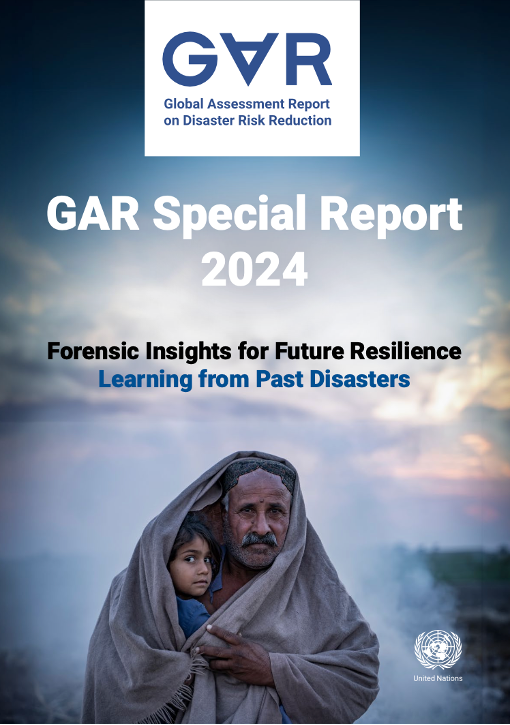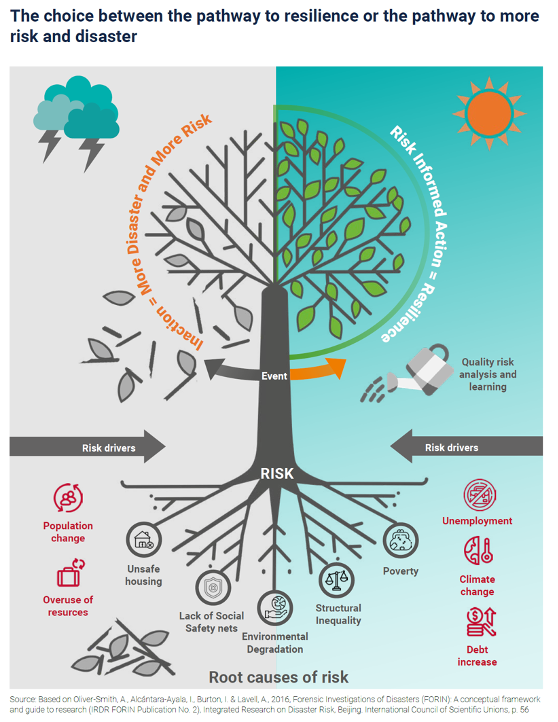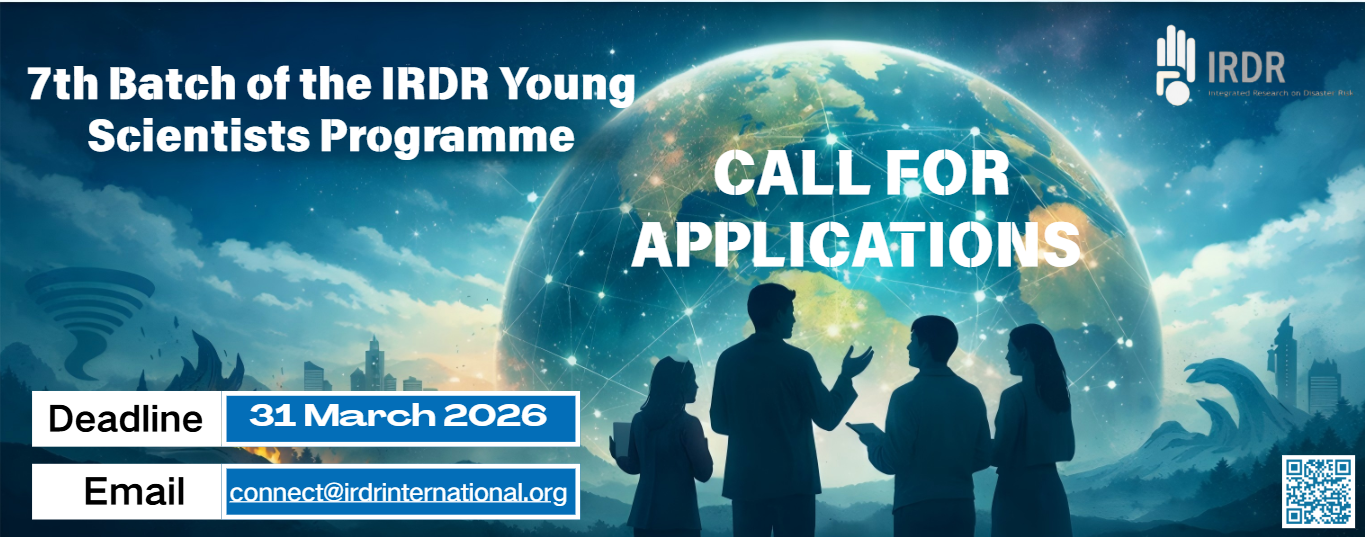The United Nations Office for Disaster Risk Reduction (UNDRR) has officially launched the GAR Special Report 2024: Forensic Insights for Future Resilience: Learning from Past Disasters. This report provides a detailed forensic analysis of recent disaster events, exploring the underlying causes and impacts of ten major global disasters. The findings aim to offer critical insights into disaster risk and resilience, helping to inform future strategies for disaster risk reduction and preparedness.

The report, introduced by Kamal Kishore, Special Representative of the UN Secretary-General for Disaster Risk Reduction (UN SRSG on DRR), highlights the urgent need to reduce vulnerability and exposure to disasters through forensic analysis, emphasizing immediate action, data-driven strategies, and cross-sector partnerships to build resilience in an era of increasing climate risks. These insights will be key in guiding future disaster risk reduction strategies.
Loretta Hieber Girardet, Chief of the Risk Knowledge, Monitoring and Capacity Development Branch at UNDRR, served as the moderator during the event. In her remarks, she emphasized that understanding past disasters is essential for preventing future ones. She noted that, despite advancements in early warning systems and disaster risk reduction (DRR) policies, disaster risks continue to escalate due to factors such as rapid urbanization, environmental degradation, and insufficient long-term planning.
Jenty Kirsch-Wood, Head of the Global Risk Analysis and Reporting Section at UNDRR, delivered the presentation on the GAR Special Report 2024, focusing on its importance. She emphasized the rationale behind the report, highlighting the need to better understand the root causes of disasters in an increasingly hazardous world. Kirsch-Wood explained that the report aims to provide insights that can guide future disaster risk reduction strategies, ensuring long-term resilience and better preparation for the growing frequency and intensity of natural disasters.
During the panel discussion, Roger S. Pulwarty, a senior scientist with the Intergovernmental Panel on Climate Change (IPCC) and UNDRR, emphasized the significance of the GAR Special Report 2024 as a crucial tool in global disaster risk management. He highlighted how the report’s forensic analysis offers valuable lessons for better understanding and mitigating disasters. Professor Ilan Kelman from University College London (UCL), an expert in disasters, climate change, and humanitarian issues, echoed these sentiments during the panel. He emphasized the importance of the GAR Special Report 2024, asserting that it provides critical insights into the nature of disaster risks. Kelman emphasized that understanding these risks is essential for fostering global security and that collective action is imperative to safeguard the planet from escalating hazards.

In line with IRDR’s mission, the GAR Special Report 2024 points out the importance of interdisciplinary approaches to disaster risk reduction. The report aligns with IRDR’s ongoing focus on addressing systemic risks. In 2016, the IRDR Working Group on FORIN (Forensic Investigations of Disasters) released a report that introduced the FORIN methodology for the first time. Since then, the methodology has been translated into Chinese and Spanish, expanding its global reach. This approach has gained increased recognition and adoption among stakeholders. IRDR will continue to provide further services and research in this area.
For more information, access the full report here.





